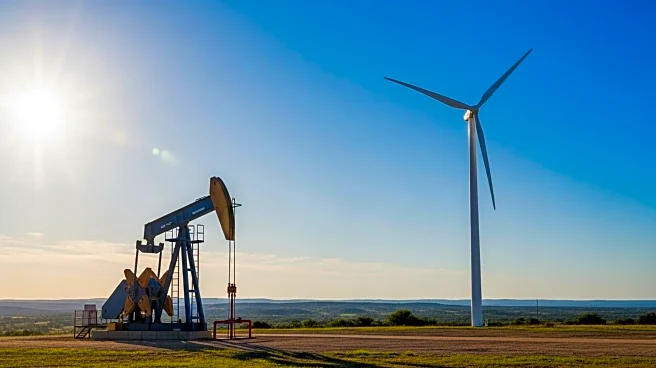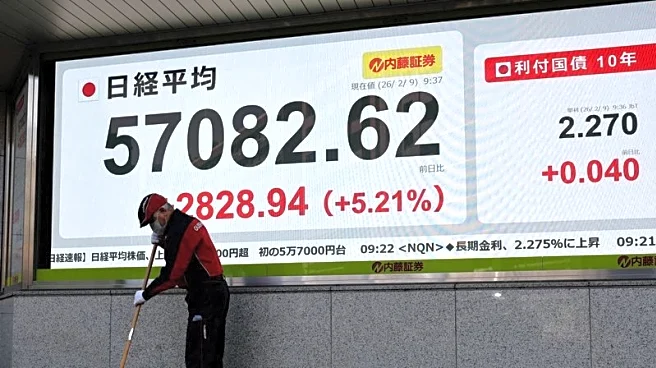What is the story about?
What's Happening?
Texas Railroad Commission Chairman Wayne Christian announced a significant reduction in methane intensity by 50% in the Permian basin since 2022. This achievement comes as oil and natural gas production in Texas has reached historic levels. Christian emphasized that Texas has managed to balance fossil fuel production with environmental progress through innovation and industry-driven solutions, rather than federal mandates. The reduction in methane emissions is attributed to improved infrastructure, better reporting, and voluntary industry actions, which have led to a 63% decline in flaring rates from June 2019 to May 2025.
Why It's Important?
The reduction in methane emissions is crucial for environmental progress, as methane is a potent greenhouse gas. Texas, being the largest producer of oil and gas in the U.S., plays a significant role in national energy security and economic stability. The state's approach to reducing emissions while maintaining high production levels demonstrates that environmental and economic goals can be aligned. This development may influence other states and industries to adopt similar strategies, potentially impacting national energy policies and environmental standards.
What's Next?
The Texas Methane & Flaring Coalition's report highlights ongoing efforts to further reduce emissions and improve environmental outcomes. Future steps may include continued investment in technology and infrastructure to capture natural gas that would otherwise be flared. The success of these initiatives could lead to broader adoption of similar practices across the U.S., potentially affecting federal energy and environmental policies. Stakeholders, including industry leaders and policymakers, will likely monitor Texas's progress as a model for balancing energy production with environmental responsibility.
Beyond the Headlines
The reduction in methane emissions in Texas challenges the narrative that fossil fuel production is inherently detrimental to the environment. It raises questions about the role of industry-driven solutions versus government mandates in achieving environmental goals. The success in Texas may prompt discussions on the effectiveness of voluntary industry actions and the potential for collaboration between government and industry to address climate change.















